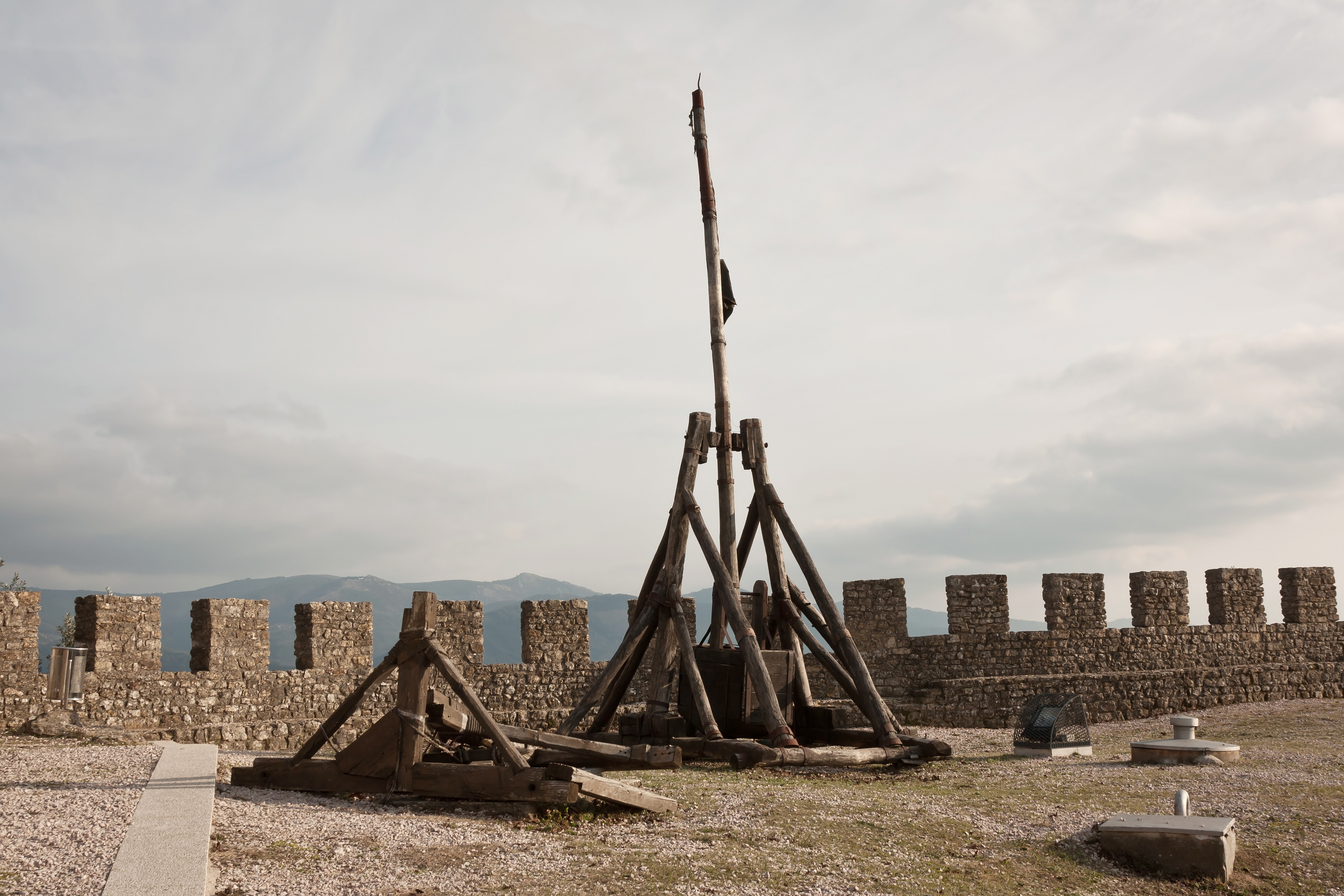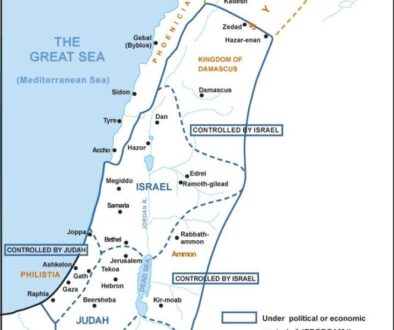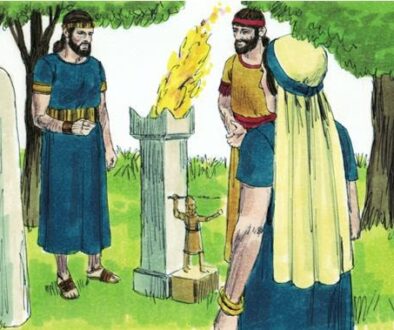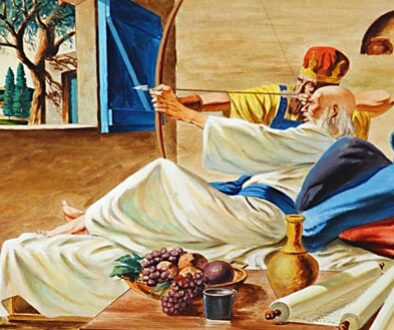2 Kings 15 Azariah/Uzziah
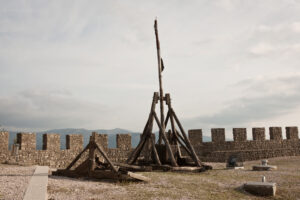
Amaziah has been killed in Lachish. The people of Judah raise up his son to sit on the throne. Azariah and Uzziah are the same person.
Azariah is the name used in 2 Kings 15 for the son of Amaziah, whereas 2 Chronicles 26 calls him Uzziah. Being that 2 Chronicles has the most information on him, I’m going to call him Uzziah for our story.
Uzziah was a busy king. No grass grew under his sandals! And he was a godly king. He sought the Lord in all he did. God blessed the works of his hands, in government, with building projects, and in battle. But he became prideful in the end. When he was confronted over his sin, he became angry. This anger brought him punishment that lasted the rest of his life. Let’s rejoin our story and see where the Spirit takes us today in the life of Uzziah.
♥ ♦ ♥
Uzziah is sixteen years old and being raised up as king of the land of Judah. He is not ready for this job. He hasn’t trained for it. He doesn’t know the first thing about running a kingdom. He is MORE than grateful that those around him do!
One thing that he insists upon from his advisors, is that they are godly men. His abba was once a godly man, but he began worshiping idols. Uzziah is determined not to let that happen in his own life. His closest advisor in Zechariah, the priest. He honors him above all others.
To this end, one of the first acts that Uzziah does is have a copy of the Law mad for his personal use. Uzziah starts and ends each day by reading in his scrolls. He also looks back over the record of the chronicles of the kings of Judah. He sees their strengths and weaknesses. He vows not to repeat their mistakes. “I must learn from the past” Uzziah tells himself. “To take what is good and discard what is sinful. Only then can I become a true leader.”
Uzziah’s favorite stories are of King Solomon. Of his great wisdom and his building efforts. “Lord God of my fathers, I pray that I might be even half the king that Solomon was. But that my heart remains true to You. That NO false god fills my heart, my home, or the land of the Lord.”
Uzziah begins his reign by rebuilding what has been torn down. The walls of the city of Jerusalem are still a work in progress. It is time to devote both manpower and money to this task. “We cannot begin to retake what has been given to us by the Lord, until we can protect what He has already given us” Uzziah tells the people.
Once the wall of Jerusalem is fortified, Uzziah turns his attention to the other cities that have crumbled under the attack of the many nations who seek Judah’s destruction. After they are fortified, it is time to take the land that God had promised Israel through Moses and Joshua.
Uzziah has a very good army. He has 2,600 mighty men of valor in command of 307,000 soldiers. One thing they lack though, is proper armament. Swords alone cannot defeat the enemy. His men need protection.
“I want each man to be equipped with sword, shields, spears, helmets, coats of mail, bows, and stones for slinging. See to it that they are all also trained in the use of the sling, sword and shield. The bow and arrow have always been the weapon of choice for the tribe of Benjamin. Ensure that they have the best of both as well.” Uzziah tells his chief commander.
It takes months for the armaments to be ready. The first thousand pieces were used for training. By the time all the armaments are ready for every last man, Uzziah’s troops are battle ready and highly skilled. Uzziah himself, is also battle ready and very skilled.
“We march out to Gath this day to take it in the name of the Lord. We do not go in our own strength and might, but by the hand of the Lord our God. HE fights for us. Remember this as you face the enemy. Be strong and of good courage” Uzziah calls out to his troops.
Every man is ready and confident in the Lord. They know what lies ahead, but they know the One who fights for them, and they are not afraid. Gath falls under the hand of Judah in the first day. Her walls are breached as though they were made of fresh straw. Her people’s blows bounce off the shields of Judah. Not a single life is lost in the ranks of Judah.
After subduing Gath, Uzziah continues the push through the land of the Philistines. “On to Jabneh for Judah and for the Lord!”
Jabneh falls just as quickly and completely. The Lord is truly with the men of Judah. “On to Ashdod! For the Lord and for Judah!”
Ashdod is the third major city of the Philistines to fall. After subduing them, Uzziah begins building cities within the boarders of the Philistines and placing strong towers to defend them. The Philistines who are left send him tribute each year in exchange for their lives.
The Lord works as fully for Uzziah when they go against the Arabians who lived in Gurbaal and against the Meunites. Their cities fall under the power of the Lord and the sword of Judah. To avoid the sword, the Ammonites willingly bow to Judah and send tribute to Uzziah as well.
Year after year, Uzziah places his forces into the hands of the Lord, and year after year, the Lord delivers victory to Judah. All those around Judah are either subject to Judah or conquered by them.
Uzziah continues to increase the defensive position of Judah by equipping it with new machines capable of launching arrows and stones at the enemy. These defensive machines are mounted on towers built along the walls of Jerusalem, in the wilderness, and on other strategic cities. Judah is ready for the days when their subjects try and rise up against them.
One of the best defensive acts Uzziah makes is to cease warring with Israel. He doesn’t go so far as to reunite the kingdoms, but he establishes friendly relations with Israel and even land from Israel to seal their alliance of good will.
Battle is not the only thing that occupies Uzziah’s heart. He is a man of the earth. He loves working in the soil. If he had been born into any other family, he would have been a farmer. His talents shine in the vineyards. He has farmers and vinedressers throughout the fertile valley who raise their crops for the king. And he has been known on more than one occasion to personally ‘lend a hand’ in the harvest.
Uzziah also has large herds of sheep, oxen, goats, and camels. To protect his livestock, he has towers built in the wilderness where they graze to alert the shepherds to predators. He also designed and had built cisterns in multiple places to water his flocks. These he has tended by the best herdsmen Judah has.
Through the years, all that Uzziah does is watched by the neighboring nations. His fame has spread as far as Egypt. And he begins to believe his own ‘press’.
After five decades as a godly king, pride grows in Uzziah’s heart. He begins to believe that HE is the closest man to the Lord and that he needs no other to stand between them. He puts himself even above the Levites, whom the Lord called to stand between man and God.
Uzziah decides one day that he is going to burn incense to the Lord. Not just offer it to the priest to burn for him, but take it into the Holy Place in the Temple and burn it himself. Uzziah finds the most elaborate incense holder he has and prepares it with incense for the Lord. He places it on a carrying pole and makes his way to the Temple.
The priests are not surprised to see Uzziah here. He comes often to the house of the Lord. And seeing him carrying incense isn’t totally out of character. What is out of character and completely unexpected is when he walks right by the priest, who is waiting to receive his offering, and begins marching up the stairs of the Temple.
As Uzziah reaches the threshold and pushes open the doors, Azariah the priest calls out an alarm and rushes after him. Following with Azariah are seventy other priests and guards. Before the king can make it to the altar of incense, they block his path. They don’t let him pass, no matter which way he moves or presses.
“It is not for you, Uzziah, to burn incense to the Lord, but for the priests, the sons of Aaron, who are consecrated to burn incense. Go out of the sanctuary, for you have done wrong, and it will bring you no honor from the Lord God” (2 Chronicles 26:18).
Uzziah’s face grows redder with anger at each blocking move. Azariah’s words put the icing on the cake! “How dare he stand between me and my God” thinks Uzziah. But before he can even utter a rebuke, the eyes of all those facing him go white with fear.
Uzziah starts turning his head to see what they might be frightened of, when he catches his reflection off the gold adorning the walls of the Temple. He can clearly see that his forehead has gone ghostly white. He knows immediately what it is, and so do the priests. The Lord has struck him with leprosy!
Uzziah drops the censor and runs from the Temple with the priests following quickly on his heels. They do not stop pressing him forward until he is completely out of the courtyard. He would never be welcome in the House of the Lord again.
Uzziah realizes that he cannot rule Judah this way either. From under a tree outside his palace, he calls for his son, Jotham. When his son arrives, Uzziah holds out his hand for him to keep his distance. “Do not approach. The Lord has struck me with leprosy for my sins. I was arrogant and angry when He tried to correct me. I cannot sit on the throne this way.”
“What are you going to do Abba?”
“You will rule in my place.”
“My king! I am not ready to take your place! You still breathe. It is not right for me to do this!”
“I will direct you from this day forward. You will be my voice to the people and the one they bring their troubles to. I will stand in a corner wearing a veil so you will be able to consult me if need be. But I cannot live in the palace any longer. Erect for me a small house nearby where I may live out my days.”
“It will be done as you have said, my king.”
From that day, until the death of Uzziah, Jotham rules for Uzziah following his directives. On the day of Uzziah’s death, Jotham proclaims a solemn day of mourning. Uzziah cannot be buried with the kings because of his leprosy. Jotham places his body in one of the fields that belongs to the kings. He is certain that his abba would approve, as he loved the soil of the fields. Jotham now reigns alone on the throne. No matter the circumstances, he is grateful for the ‘training period’ with his abba.
(to be continued)
I wonder if Uzziah repented of his sin. He wasn’t healed of his leprosy. Did he pray for healing, or did he accept the punishment a just punishment for his actions? We are not told if he did any more good works after installing his son on the throne. I would hope that he did. I also would hope that he made sure his son realized that he had sinned and was being punished for it. NOT that God was a cruel master. I pray he didn’t turn away from the Lord in anger like Asa did after being confronted for his sins.
I peeked into Jotham’s life after the death of Uzziah and, judging by his actions, Uzziah taught him well. He did not go into the House of the Lord at all. Maybe it was out of fear, and maybe out of protest.
There are many examples of godly kings passing down their hearts to their sons, but more of godly king’s whose sons go astray. I’m glad to see two in a row. Four actually, if you count the beginning years of Joash and Azariah with Uzziah and Jotham.
I know I passed down my heart to my children, but they are not living the lives I would have them live. They have all wandered away from the Lord. Which makes me wonder what I did wrong. My husband has two children, who lived with contention between their parents regarding custody and other matters. They both hold fast to the Lord. Is it because I raised them on my own for more than 12 years? Their father wasn’t interested in them at all. Was the absence of a father in their lives the reason? I don’t know. I wish I did, so I would know how to pray. All I can do is put them in God’s hands.
Father God, thank You for my godly parents. They were not always perfect or even perfectly walking after You, but they introduced me to You as a child. That child like faith STUCK. Thank You for growing our relationship too Father God.
I’m asking again, Lord Jesus, for Your help with my children. They were Yours LONG before they were mine. I have somehow failed them. Please! Repair the places that I broke and bring them back to You. Bind up the hurting places in their hearts. Show them the truth, depth, and breadth of Your love for them. Be ‘real’ to them in a way that they cannot ignore! I leave them again in Your hands.

